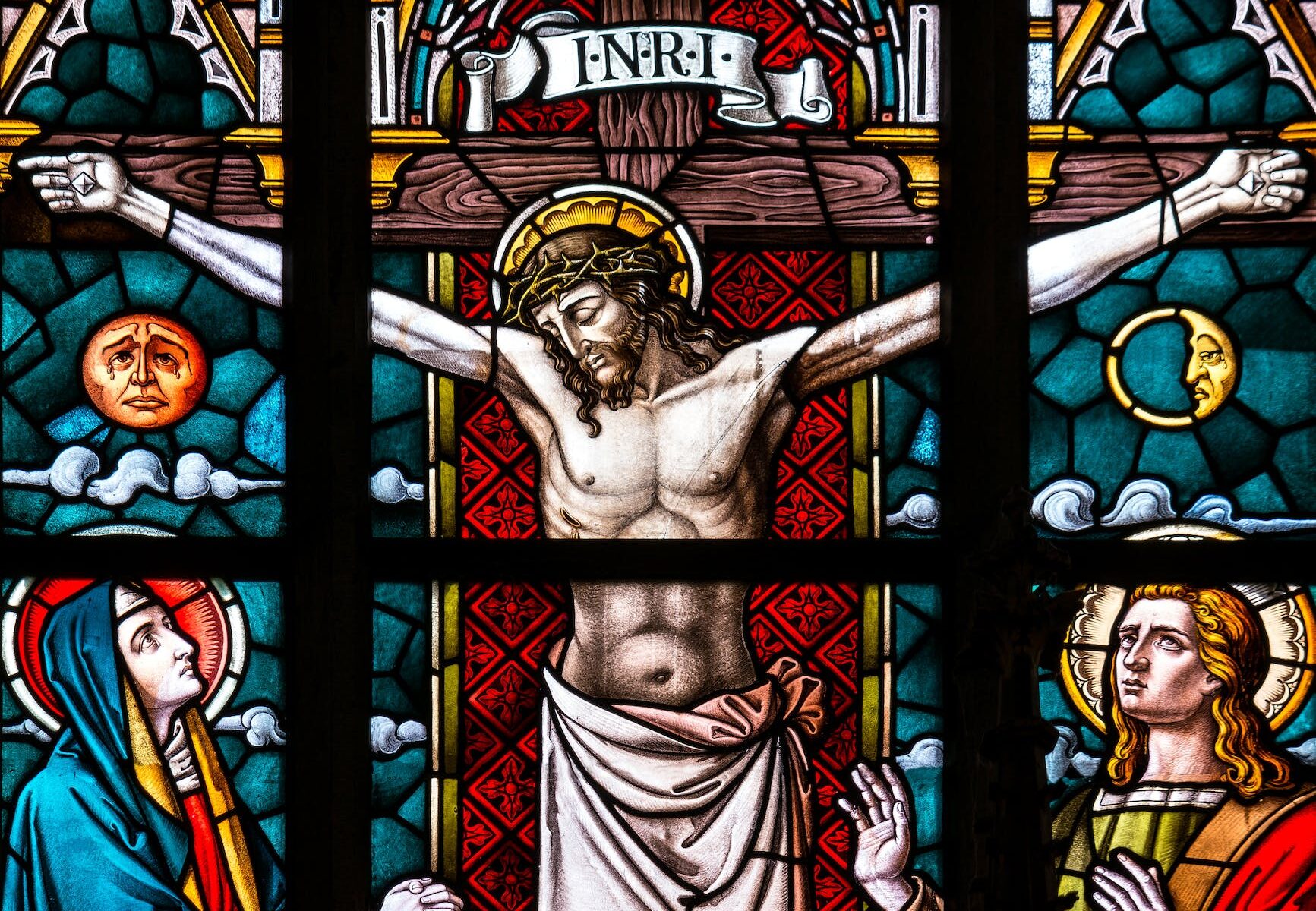As Christians, we have a job to do. What is that? To share the Gospel? Yes. To make disciples and baptize them in the Name of the Holy Trinity? Yes. To teach the successive generations of disciples to observe all that Christ has commanded? Yes. To give money generously to the Church so that it can fulfill its mandate? Yes. In many ways, all these things overlap forming a single job. All these things are also talking about the “how;” that is, the verbs. To disciple and to baptize. To teach and to observe. To give and to fulfill. However, what is the “what” of these various actions? That’s what we are going to consider today.
The “what” we pass down, what we teach and observe is the Faith. The Apostolic Faith. It is that faith for which St. Jude (Jude 3) says we are to contend and that “was once for all delivered to the saints.” I cannot speak for you, but if I am to contend or fight for the faith, it better be well defined. I am not going to stick my neck out for something frivolous and undefined. And, indeed, the Apostolic Faith is well-defined – despite the 5,000 or so Protestant and evangelical denominational and non-denominational churches. It is due to this Apostolic Faith that we claim to believe in – besides one, holy, and catholic – the apostolic Church. The Church that is 2,000 years old. No, Jesus did not found His Church in 1609 with the Baptist Movement. Or 1795 with the Methodists. Or when the first Vineyards were planted in 1975. The Church is the family of God, and it is our job as living members of that family to pass on the one and only Faith taught to the Apostles by Jesus Himself.
Author May Larmoyeux says this about family stories:
“It is up to us to pass on family stories—especially ones about God intervening in our lives and homes. And doing this does not need to be complicated. We can share family stories with our children and grandchildren while washing dishes together, taking a relaxing walk, or going on a drive.”
This is how Scripture puts it in Deut. 6:4-9:
“Hear, O Israel: The Lord our God, the Lord is one. You shall love the Lord your God with all your heart and with all your soul and with all your might. And these words that I command you today shall be on your heart. You shall teach them diligently to your children, and shall talk of them when you sit in your house, and when you walk by the way, and when you lie down, and when you rise. You shall bind them as a sign on your hand, and they shall be as frontlets between your eyes. You shall write them on the doorposts of your house and on your gates.”
Some of my best theological conversations are with my boys just driving to Wal-Mart.
How do we recognize this Apostolic Faith? As early as 125 to 135 AD with Marcellus of Ancyra, we see what is called the Old Roman Creed. It goes something like this:
I believe in God the Father almighty; // and in Christ Jesus His only Son, our Lord, Who was born from the Holy Spirit and the Virgin Mary, Who under Pontius Pilate was crucified and buried, on the third day rose again from the dead, ascended to heaven, sits at the right hand of the Father, whence He will come to judge the living and the dead, // and in the Holy Spirit, the holy Church, the remission of sins, the resurrection of the flesh (the life everlasting).
Sound familiar? The Old Roman Creed is, of course, the basis for the Apostles’ and Nicene Creeds.
As early as the fourth century, there was a threefold test of catholicity laid down by St Vincent of Lérins, namely ‘what has been believed everywhere, always, and by all’. By this triple test of ubiquity, antiquity, and unanimity, the Church is to differentiate between true and false tradition. I should caution you here that unanimity does not mean consent in the sense of consensus by democratic vote. Unlike the United Methodists who, just a couple of years ago at their General Convention, voted on the compatibility between Scripture and homosexuality, the Church of Christ cannot put the tradition of the Church up for a vote. The Apostolic Tradition was given to the Church through the Apostles directly by Christ. The Church acquiesces to the truth of the Tradition by the Holy Spirit within each of Her members.
Time flies. Our lives are not that long. In the big scheme of things, we are not all that important – certainly not so important as to change the Faith of the Church as so many narcissists of today have. We are to receive the Faith; we are not to innovate it. It is not for us to change what has been given to us. We are to be faithful to what has been entrusted to us. To guard it and to pass it along unaltered and unadulterated.
Thus, St. Paul says (2 Tim. 1:13-14):
Follow the pattern of the sound words that you have heard from me, in the faith and love that are in Christ Jesus. By the Holy Spirit who dwells within us, guard the good deposit entrusted to you.
The word “guard” φυλάσσω (phylassō), meaning to guard, watch, keep, primarily denotes guarding, but it can also indicate keeping commandments.
A synonym of the word is τηρέω (tēreō), which means to keep; to guard, watch, protect. This verb can also indicate obedience as keeping commandments or words.
It is precisely this second word Jesus uses in Matthew 28:19, 20:
“Go therefore and make disciples of all nations, baptizing them in the name of the Father and of the Son and of the Holy Spirit, teaching them to observe (τηρέω) all that I have commanded you.”
This is the Faith that we must – if we dare to call ourselves Christians – guard, keep, and obey. We must embrace all that Christ gave us and reduce none of it.
To this end, NT scholar, historian, and Anglican bishop, N.T. Wright, says,
“Jesus – the Jesus we might discover if we really looked, is larger, more disturbing, more urgent than we had ever imagined … It is we, the churches, who have been the real reductionists. We have reduced the kingdom of God to private piety; the victory of the cross to comfort for the conscience; Easter itself to a happy, escapism after as sad, dark tale. Piety, conscience, and ultimate happiness are important, but not nearly as important as Jesus himself” (N.T. Wright, quoted in ReJesus).
Church, and the Faith She passes on, is decidedly not what we want “get out of it;” but it is solely God’s self-presentation, His self-revelation to us. It is not what we like as much as what God has given to us. Why? Because our duty and joy as creatures is to worship God. How do we worship God? Well, Jesus says, “in Spirit and truth.” That, by itself, does not tell us much if we read these words without any context. Perhaps, Jesus is saying that we can worship God in any way we see fit. Again, without a context, maybe we could read it that way (though there is nothing in the words “Spirit and truth” themselves that means “free-for-all”). Thankfully for us, we do have a context – the deposit of faith that has been handed down to us which the Church has guarded – and must continue to guard – by the Holy Spirit within us – as Paul tells Timothy.
To worship God in Spirit and truth is to worship God as He is, not who we want Him to be. We see precisely the unfortunate results of doing that all around us. The shocking lesson that we all must learn is what Jesus says about the “Unworthy Servant.” All the hard work we do for God, never for a moment puts God in our debt. How often do we hear it said (and how many more times is it thought): I’ve done all this, I’ve given all that money, I’ve worked so hard—surely God will be satisfied with that! ? The answer is that all genuine service to God is done from gratitude, not to earn anything at all. Saying ‘We’re not worth anything at all’ doesn’t mean that we lack a proper sense of self-worth. It just means that we must constantly remind ourselves of this great truth: we can never put God in our debt. In relation to the Faith given to us, these words of Jesus are good for us to hear: We are His servants, He is not ours. He calls the shots, we simply obey. There is great liberation in this: We do not have to reinvent the wheel when it comes to Church. We only need to be diligent to guard – not by our own strength, but by the Holy Spirit Himself – what has been entrusted to us.
Perhaps not surprisingly, we will realize – like the disciples realize in verse 5 of today’s Gospel reading – that all this will require more faith than we (or they) think we have. Jesus is quick to respond. It’s not great faith you need; it is faith in a great God that matters. Faith is like a window through which you can see something. What matters is not whether the window is six inches or six feet high; what matters is the God that your faith is looking out on. If it’s the creator God, the God active in Jesus and the Spirit, then the tiniest little peephole of a window will give you access to power like you never dreamed of. Of course, this cannot be used for your own whim or pleasure; as soon as you tried, it would show that you’d forgotten, once more, who this God really was.
So, let us go on with humility as we guard and pass on this great Faith that has been entrusted to us. Let us not be the generation in which this Faith floundered and died. For even greater than this Faith is the great God to which it testifies. The Prophet Habakkuk tells us that the just will live by faith, but as Hebrews warns us (Heb. 10:38), if we shrink back, the Lord will have no pleasure in us. Therefore, as unworthy servants, let us keep the Faith that was once for all delivered to the saints – to us! – so that when our Lord Christ does appear, we may have confidence and not shrink from Him in shame at His coming (1Jn 2:28).

